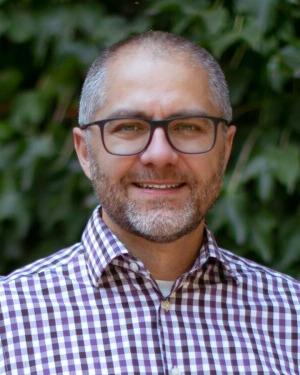
Date: November 26, 1-2 PM ET
Cost: $25 (Zoom Webinar)
*All registrants will be provided with a link to the recording and presentation slides following the session. The recording will be available for 60 days.

Canada's ENGO sector is in its infancy in terms of promoting decolonization. In this session, the Sustainability Network and Gimiwan Consulting will present three case studies drawn from ENGOs attempting to implement decolonial strategies in their work. The case studies will unpack successes and failures with an eye towards promoting broad sector learning about what decolonization can look like in environmental justice work in Canada.
Case Study 1: Working Within the Constraints of Colonial Institutions: A key finding of this case study
Case Study 2: The Learning by Doing Model: Details a project where the resurgence of Indigenous law led to transformation change, and calls on ENGOs to begin the work of decolonization rather than endlessly learning about it.
Case Study 3: Advancing Decolonization as a National Organization: Explores the challenge that national ENGOs face when attempting to create place-based relationships with Indigenous communities.
NOTE: The three case studies will be shared live and emailed to all webinar registrants after the webinar.
This workshop is for environmental non-governmental organizations working in Canada, specifically those that engage Indigenous nations in some way.

Our Presenter

Dr. Damien Lee is a member of Fort William First Nation and holds a PhD in Indigenous Studies from the University of Manitoba, and a Master of Arts in Indigenous Governance from the University of Victoria. Dr. Lee has extensive experience facilitating/teaching adult-focused education at the post-secondary level and co-leads Gimiwan Research and Consulting. Gimiwan serves maCase Study 3inly Indigenous communities and Indigenous-led organizations by providing research and workshop services based in decolonial ethics and Indigenous worldviews.

Session 1: Settler Colonialism 101
Introduce ENGO representatives to the fact that colonization is a structure and not an event. Identifies key ways that colonialism moves through individuals and organizations.
Session 2: Positionality
ENGO representatives learn how to articulate their social location within a settler colonial state, and in relation to potential Indigenous partners.
Session 3: Inherent Indigenous Governance 101
Introduce the fact that Indigenous nations have their own sources of political authority that they can (and do) draw on when addressing environmental issues. Examples provided.
Session 4: Building Better Relations
ENGO representatives will road test ways they can implement previous workshop key points to re-imagine partnerships with Indigenous nations.
Cost: $100 (or register 4 staff from the same organization for one stream and get the 5th registration free)
All registrants will be provided with a link to access the recordings and presentation slides for 60 days following each session.

Session 1: Diagnosing Settler Colonialism in the Enviro Sector
Participants will be asked to share ways in which they have diagnosed and traced power in social justice movements and/or in the ENGO sector. This workshop will make space for discomfort as part of promoting decolonization.
Session 2: Inherent Indigenous Governance
A mix of advanced and introductory theory, this workshop delves into legal and political pluralism, naming the fact that Indigenous nations have their own sources of political authority that they can (and do) draw on when addressing environmental issues.
Session 3: The Nonprofit Industrial Complex
ENGO participants are introduced to theories and examples describing the Nonprofit Industrial Complex and the “Shadow State.” Purpose is to show how settler colonialism structures civil society.
Session 4: Decolonizing ENGO-First Nation Partnerships
This workshop delves deep into how ENGOs can partner with Indigenous nations beyond the Nonprofit Industrial Complex while promoting deference to inherent Indigenous political leaders.
Cost: $100 (or register 4 staff from the same organization for one stream and get the 5th registration free)
All registrants will be provided with a link to access the recordings and presentation slides for 60 days following each session.

The Indigenous only space will be collaborative in nature but critical in approach. This track is a space for Indigenous folks within the ENGO sector to come together to discuss their experiences and work, with an eye to taking a position on what the sector might need to do in order to promote decolonization. Participants will use the first session to define our goals for the remaining three meetings. Therefore, session topics named here are proposals only.
Session 1: Naming the Cannibal: Settler Colonialism in the ENGO Sector
Session 2: Proposed topic: Reflections on working in the ENGO Sector
Session 3: Proposed topic: Centering Indigenous Thought in the ENGO Sector
Session 4: Proposed topic: Visioning a Decolonial Environmental Sector
Cost: Free
